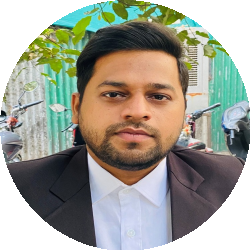HEARING DISABILITY CASE: DELHI HIGH COURT ORDERS FRESH MEDICAL BOARD FOR CIVIL SERVICES ASPIRANT
A UPSC-2024 aspirant (AIR 1001) with a hearing disability was assessed at 1% disability by one medical board and 67.84% by another. Citing this wide inconsistency, authorities ordered a third medical evaluation. The candidate contested the move, asserting that the appellate board’s finding was final. The Hon'ble Delhi High Court, however, upheld the decision for a fresh examination. FACT OF CASE A candidate who cleared the Civil Services Examination 2024 under the Persons with Benchmark Disability (PwBD) category claimed a permanent hearing disability exceeding 40%. After qualifying for the examination with an All India Rank within the top 1001, the candidate underwent a medical assessment at a national medical institution, where the disability was recorded as only 1%, rendering the candidate ineligible under the PwBD category. Dissatisfied, the candidate appealed before an Appellate Disability Medical Board at a central government hospital specializing in research and referral, which later assessed the disability at over 67%. Despite repeated requests, the report was not shared, and instead, the candidate was directed to undergo a third medical evaluation at another government hospital. ISSUE BEFORE THE COURT Whether the respondents were justified in directing the petitioner to appear for a third medical examination after the Appellate Medical Board had already provided its final report, and whether such action contravened the Civil Services Examination Rules. EXPLANATION OF COMPLEX TERMS 1. PwBD (Persons with Benchmark Disability): Refers to individuals with at least 40% disability, recognized under the Rights of Persons with Disabilities Act, 2016. 2. Appellate Medical Board: A higher medical authority constituted to review findings of the initial medical board and give a final assessment on a candidate’s disability status. 3. Civil Services Examination Rules: The governing framework for recruitment to India’s premier administrative services, including provisions for candidates with disabilities. PETITIONER’S ARGUMENTS The petitioner’s counsel contended that the Appellate Medical Board’s report is final under the examination rules. Therefore, any direction for another medical test is arbitrary and violates the established procedure. The petitioner argued that the new examination order was issued without legal basis and that the respondents acted beyond their powers. It was further submitted that the Supreme Court decision cited by the respondents was inapplicable since it involved conflicting medical reports of opposite nature, unlike the present case. RESPONDENT’S ARGUMENTS The respondents maintained that there was a substantial discrepancy between the initial medical assessment (1% disability) and the appellate board’s finding (approximately 68%). Such a vast difference, they argued, warranted further verification to ensure fairness and consistency. Hence, the decision to constitute a third medical board was justified and aimed at resolving the anomaly in expert opinions. RELEVANT CASE LAW & LAW DISCUSSION The Court referred to Department of Personnel and Training v. Kore Nihal Pramod (SLP (C) No.17995/2025), where the Supreme Court had faced similar inconsistencies between medical reports and ordered a fresh examination by an independent expert board. The Delhi High Court observed that while appellate medical findings are generally final, exceptional circumstances involving glaring differences may justify an additional medical evaluation. COURT’S OBSERVATIONS The Bench noted the unusually wide gap between the initial and appellate assessments of disability—1% versus 67.84%. It was not a mere difference in medical interpretation but a substantial divergence affecting eligibility under the PwBD category. Recognizing the need for clarity and fairness, the Court found the Tribunal’s order for a third evaluation reasonable. The Court also directed that the new board should consist of doctors nominated by three independent institutions—the national medical institute, the central health services, and the army referral hospital—none of whom should have previously examined the petitioner. COURT DIRECTIONS / JUDGMENT The High Court upheld the Tribunal’s direction for a third medical examination, specifying that: 1. The new Medical Board be constituted within two weeks and complete its assessment within one week thereafter. 2. The report of this board would be final and binding. 3. The respondents must coordinate with the concerned hospitals and ensure due notice to the petitioner. 4. Compliance with the Tribunal’s earlier directions regarding training and report disclosure must continue, subject to ongoing review proceedings. The writ petition was disposed of with no order as to costs. ____________________________ DATE OF DECISION: 06.10.2025 CASE NUMBER:W.P.(C)13162/2025
Author

Adv. ALOK KUMAR
Comments are not allowed on this article.

 YouTube
YouTube



 Print
Print
 October 08 2025
October 08 2025



